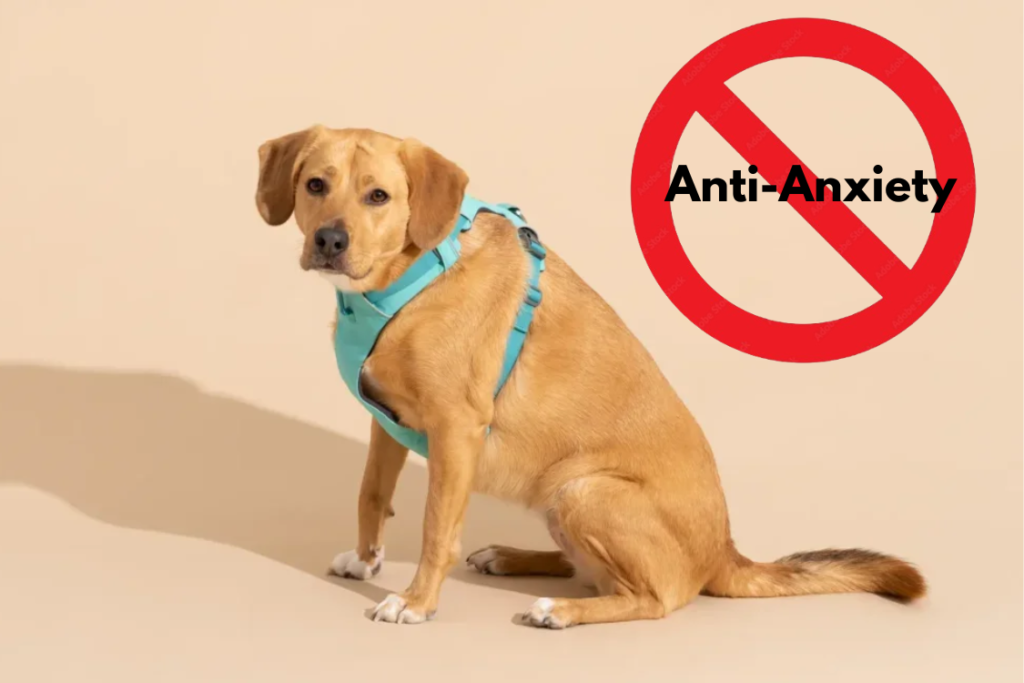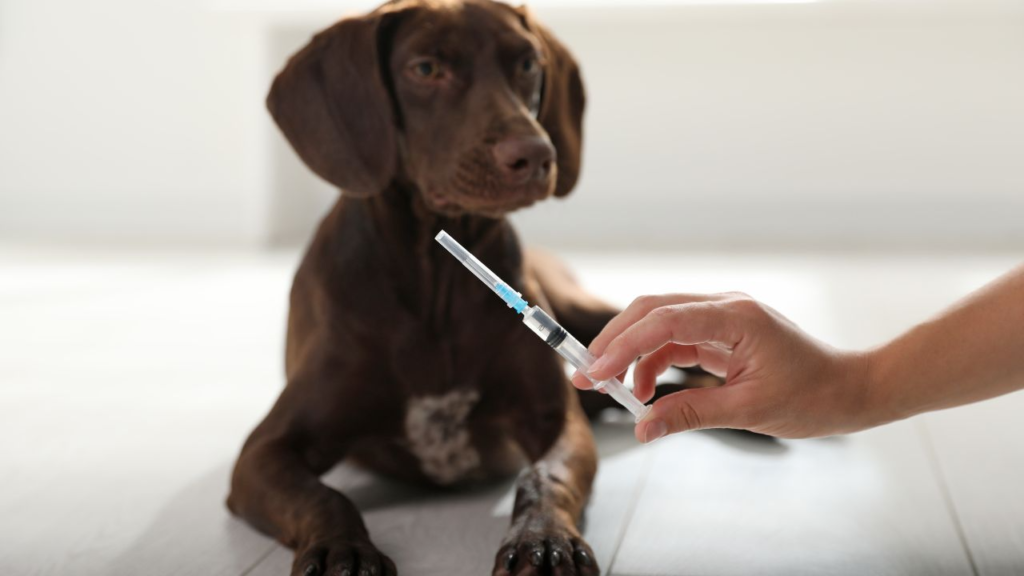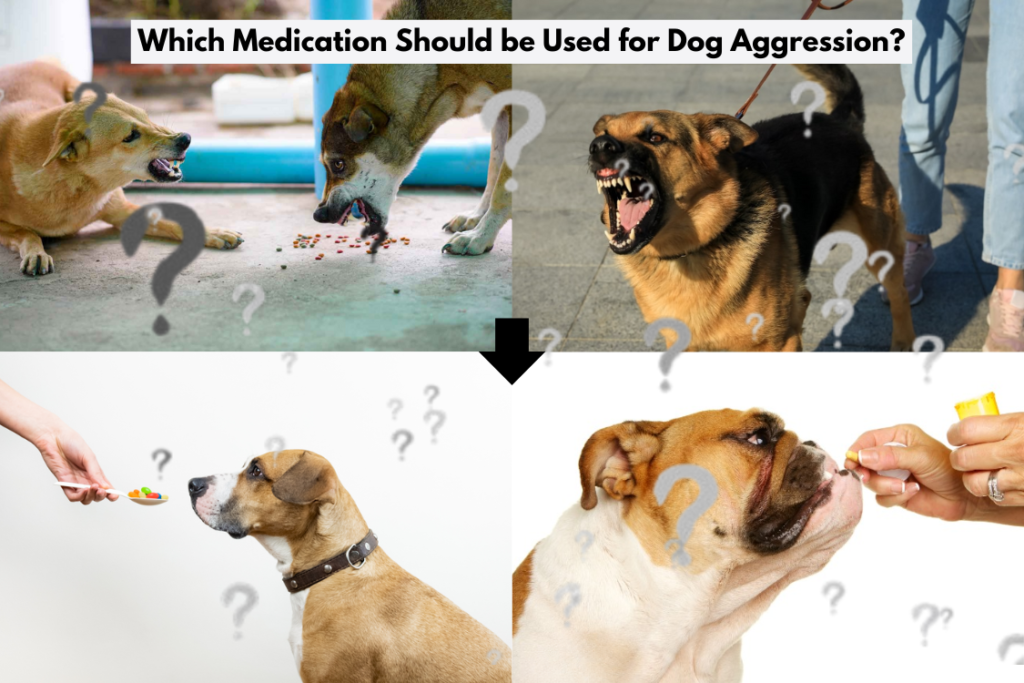Dealing with dog aggression can be an overwhelming challenge. Whether it’s aggressive behavior towards other dogs, humans, or even specific situations, it can make everyday life stressful for both the dog and its owners.
While behavior training and socialization are important tools, there are times when medications can play a vital role in treating aggression. This article explores the types of medications used for dog aggression, how they work, and when it might be time to consider them.
What is Dog Aggression and Why Does It Happen?

Before diving into medications, it’s important to understand the root cause of aggression. Aggression in dogs is often a symptom, not the problem itself. It can stem from a variety of reasons, including:
- Fear: A dog that feels threatened may react aggressively as a form of self-defense.
- Resource Guarding: Dogs may become aggressive if they perceive their food, toys, or space as being threatened.
Tip: Dealing with food guarding? See How to Stop Food Aggression in Dogs for quick, effective tips.
- Frustration: Dogs that can’t reach something they desire, such as a toy or another animal, may lash out.
- Pain or Illness: Aggression can be a response to discomfort or pain, so it’s important to rule out medical causes.
Sometimes, aggressive behavior is linked to anxiety, fear, or genetic predispositions. Identifying the source of aggression is the first step in determining the right approach, which may include medication as part of the treatment plan.
Medications for Dog Aggression: When and Why They’re Needed

While training and behavioral modification are essential for curbing aggressive tendencies, medications may be necessary in some situations. These include:
- Severe Aggression: When a dog’s aggression is uncontrollable or dangerous, medications can help reduce the intensity and frequency of aggressive outbursts.
- Anxiety-Driven Aggression: Dogs that are anxious or fearful may benefit from medications that reduce anxiety, allowing them to be more receptive to training.
- Co-Existing Medical Conditions: Some dogs experience aggression due to underlying medical conditions like pain, neurological issues, or hormonal imbalances.
Medications are generally not a standalone solution. They should be used in conjunction with behavior modification training, ideally under the supervision of a veterinarian or professional dog behaviorist.
Types of Medications Used to Treat Dog Aggression
Different medications may be prescribed depending on the cause of the aggression. Here are some of the most commonly used medication drugs:
1. Anti-Anxiety Medications

For dogs whose aggression is tied to anxiety or fear, anti-anxiety medications can help. These drugs work by influencing the brain’s chemical processes to reduce anxiety and calm the dog’s nervous system.
Common Anti-Anxiety Medications for Dogs:
- Fluoxetine (Prozac): Often prescribed for dogs with separation anxiety or generalized anxiety, this medication can also help with aggression linked to fear and anxiety.
- Clomipramine (Clomicalm): Typically used for dogs with anxiety or obsessive-compulsive behaviors, this medication helps decrease fear-driven aggression.
- Alprazolam (Xanax): An emergency medication often used for dogs experiencing acute anxiety during specific situations, such as thunderstorms or car rides, which could trigger aggression.
These medications are typically prescribed on a long-term basis for dogs with chronic anxiety. In many cases, they need to be used in combination with behavior therapy to be fully effective.
For a more natural and daily-use alternative, you might consider trying Calming Dog Powder with Bifidobacterium longum (BL999), a probiotic strain shown to support calm and balanced behavior in dogs experiencing chronic stress and anxiety.
2. Sedatives and Tranquilizers

Sedatives are occasionally used to reduce hyperactivity and aggressive outbursts in dogs. These are typically short-term solutions and are not suitable for long-term management.
Common Sedatives for Dogs:
- Acepromazine: Often used in situations where a dog is overly excited or fearful, acepromazine calms the dog’s nervous system and prevents aggressive reactions.
- Trazodone: This sedative works as both an antidepressant and anti-anxiety medication, often prescribed to calm dogs during stressful situations that could trigger aggression.
Sedatives are typically prescribed on a case-by-case basis when a dog is overly reactive or stressed.
For a high-quality calming aid, try Billion Pets Hemp Oil. Made with organic hemp extract rich in omega fatty acids, vitamins C and E, and other nutrients, it helps ease anxiety, discomfort, and joint pain. Ideal for pets stressed by loud noises, separation, or travel, it also supports skin health and a shiny coat.
3. Antidepressants

Some aggressive behaviors are linked to underlying depression or mood disorders. Antidepressants work by regulating the neurotransmitters in the brain to improve mood and reduce aggression.
Common Antidepressants for Dogs:
- Sertraline (Zoloft): Often prescribed for dogs with compulsive behaviors or aggression caused by depression, sertraline is a selective serotonin reuptake inhibitor (SSRI) that helps balance mood.
- Doxepin: Used to treat anxiety-related aggression and compulsive behaviors, doxepin is another SSRI that can be useful for chronic cases.
These medications can help with chronic aggression, but they typically take weeks to take effect and should be combined with behavior therapy.
As a daily support supplement, try Dog Calming Chews with Colostrum Calming Complex, L-Theanine, and Thiamine. This formula promotes balanced brain chemistry and supports your dog’s emotional resilience in challenging environments.
4. Hormonal Medications

In some cases, aggression in dogs can be related to hormonal imbalances, particularly in unspayed or unneutered dogs. Hormonal treatments can help balance the dog’s hormones and reduce aggression.
Common Hormonal Medications:
- Deslorelin: A hormone-based treatment that suppresses the production of testosterone in male dogs, helping to reduce aggressive tendencies linked to mating behavior.
- GnRH Agonists: These treatments work by regulating reproductive hormones, potentially reducing aggressive behaviors related to dominance or territorial aggression.
These treatments are more common in male dogs and should be discussed with a veterinarian to determine their suitability.
To further calm hormonally-driven or stress-induced behavior, you can also explore TranQuil-Tabs for Dogs, a blend of Chamomile, L-Tryptophan, and Melatonin that helps soothe dogs naturally.
👕 Additionally, non-medicated solutions like the ThunderShirt Anxiety Vest can provide consistent physical reassurance for dogs prone to anxiety-driven aggression.
When to Consider Medication for Aggression in Dogs

Medications for aggression should be considered after options—such as training, behavioral therapy, and environmental adjustments. If the aggression is extreme or persistent, and other methods haven’t worked, medications may offer much-needed relief.
It’s important to work closely with a veterinarian or canine behavior specialist when considering medications, as they can provide guidance on the most appropriate treatment plan.
Important Considerations When Using Medications for Dog Aggression

- Monitor Side Effects: As with any medication, it’s important to keep an eye on potential side effects, such as drowsiness, appetite changes, or digestive issues. Consult your vet if you notice any troubling side effects.
- Long-Term Commitment: Medications often require several weeks to take effect, and your dog may need to be on them for an extended period. Be patient and consistent with your treatment plan.
- Combined Approach: Medications are most effective when used in combination with behavior training. This ensures that your dog learns how to manage their aggression through positive reinforcement and socialization.
- Follow Professional Guidance: Always work with a professional, whether it’s a veterinarian, behaviorist, or trainer, to ensure the right course of treatment is chosen for your dog’s specific needs.
Medications Can Help, But They’re Just One Piece of the Puzzle

From anti-anxiety medications to hormonal treatments, there’s no one-size-fits-all solution. It’s crucial to understand your dog’s specific needs, consult with a professional, and use medications as part of a comprehensive behavior management plan.
If you’re feeling stuck and have tried everything without success, it might be time to consider working with a local professional trainer or exploring online dog training programs.
For example, programs like Doggy Dan’s Online Dog Trainer, led by a trainer with over a decade of professional experience, provide expert guidance and step-by-step advice.



